Sherwood Construction Controls Interests
BY Larry Trojak
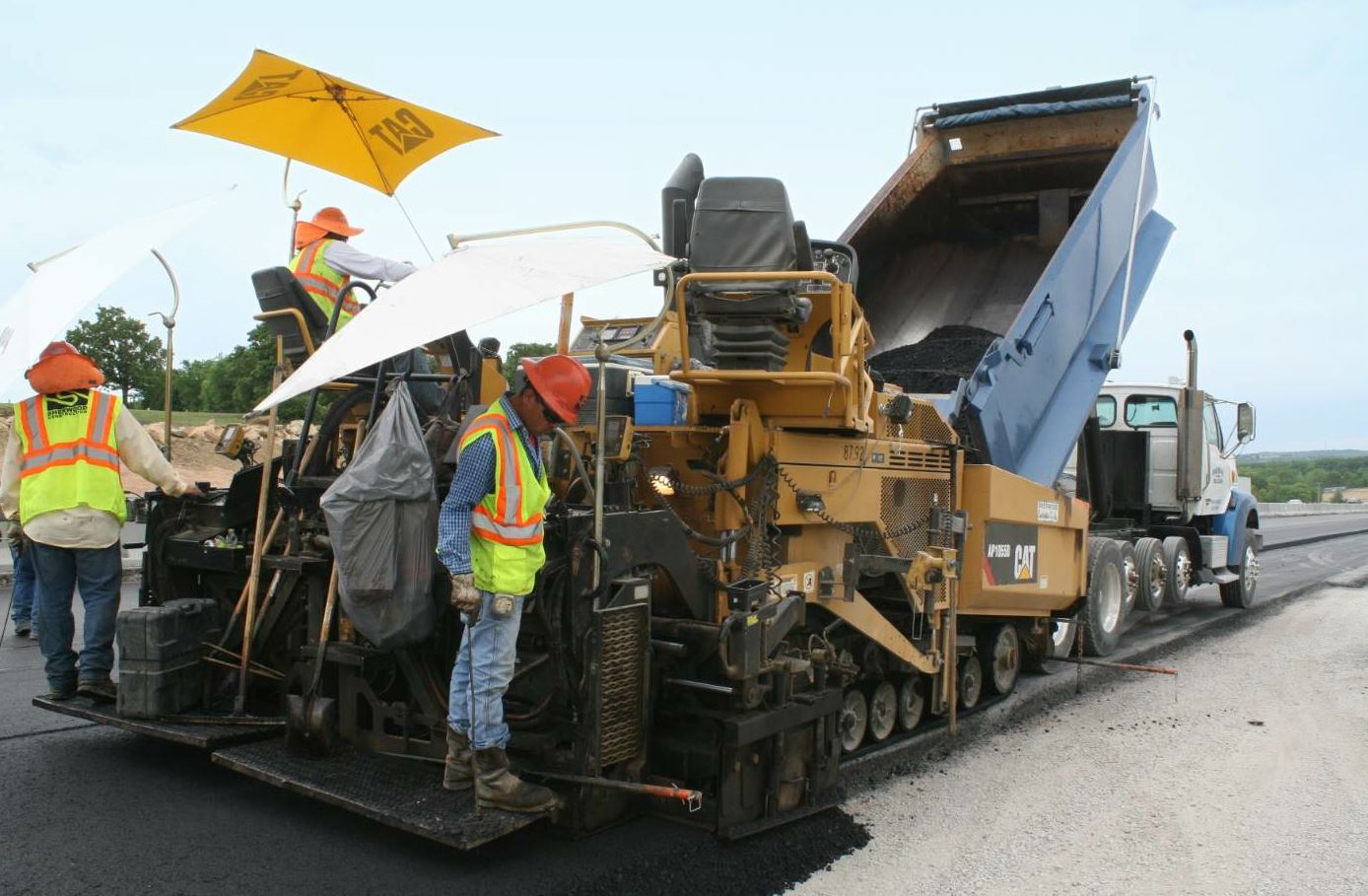
Oklahoma contractor takes asphalt matters into its own hands on turnpike project
As one of the larger general contractors in a three-state region covering Oklahoma, Kansas and Colorado, Sherwood Construction knows the value of controlling the variables of the job. Experience has shown them nothing can bring a project to a halt quicker, for example, than waiting on a materials supplier.
When a project to widen I-44 just outside of Tulsa came up—a project that called for significant volumes of asphalt—they weighed their available options and, after some consideration, chose to purchase an asphalt plant of their own. In light of the fact the project includes a substantial penalty for delays, they’ve already proven that adding a 325-TPH EX-10248 plant from Asphalt Drum Mixers (ADM), Huntertown, Indiana, was the right move.
Generational Expertise
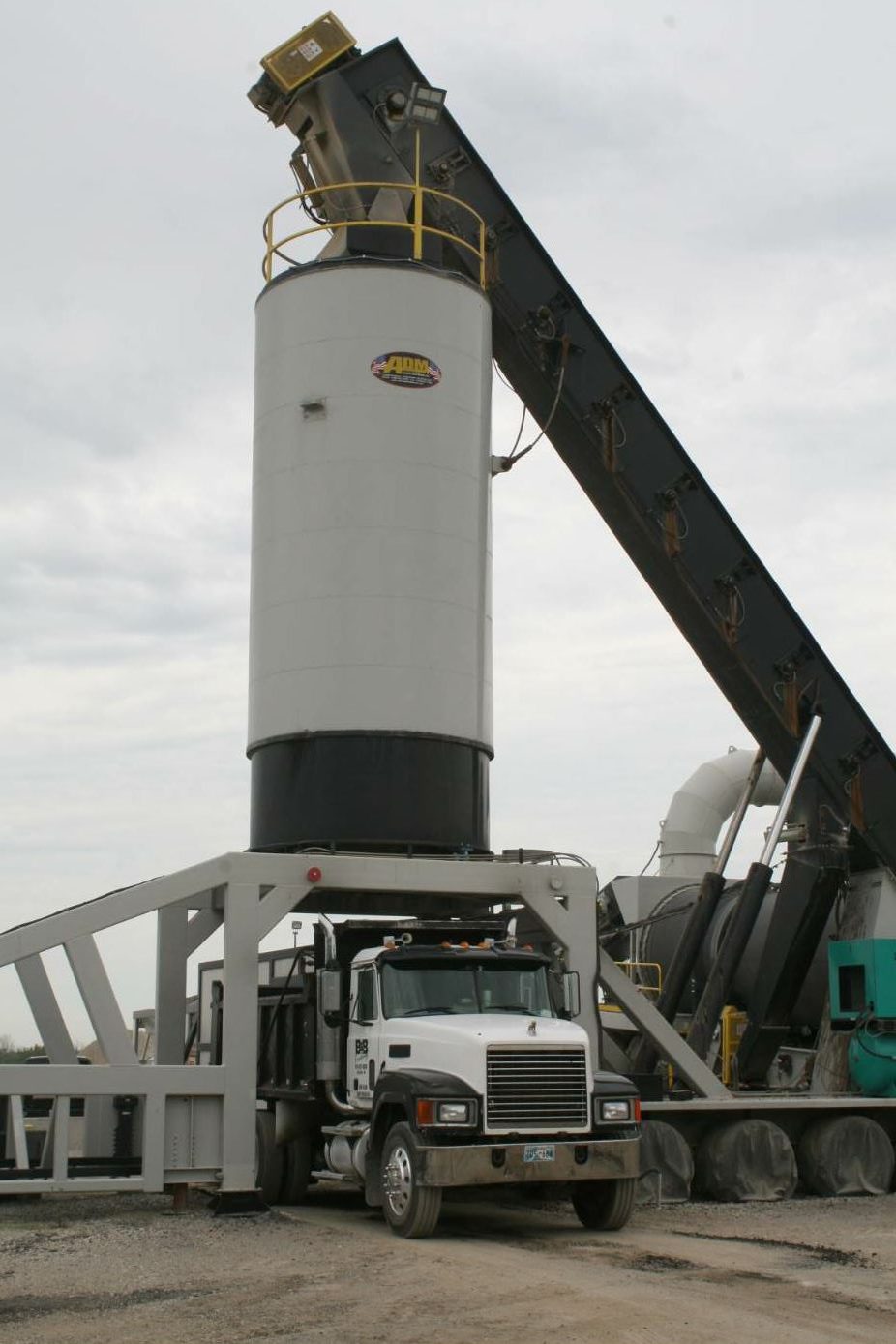
While Sherwood Construction’s asphalt plant as it exists today is portable in design, after the I-44 project is wrapped up, the company plans to move it to a nearby location and convert it into a stationary operation. You can see the wheels are covered to safeguard them. All photos courtesy ADM.
Established in 1934, Sherwood Construction’s roots are in dirt contracting. According to David Sherwood, the company’s current CEO and chairman of the board, the Sherwood lineage runs deep.
“The company was founded by my grandfather and my great-uncle as a dirt contracting firm back in the ’30s,” he said. “They were initially involved in the effort to build the interstate system in Oklahoma and Kansas and it just grew from there. I’m sure they had no idea how far the business would go. Yet here we are today. We have more than 1,000 employees. My father, Howard, recently went from actively leading the company for decades to working on an advisory basis, and both of my sons, Stephen and Conner, are involved in the business. I’m proud that the company now spans four generations.”

Because Sherwood Construction’s EX-10248 plant is designed for ease of portability, making the move to the Greenhill Materials quarry location should be a painless operation.
With that growth has come diversification. What was once a company focused solely on earthmoving, is now a multi-faceted organization consisting of 14 separate companies—including Wildcat Construction, which handles Kansas and Colorado projects—all under the Sherwood umbrella. The breadth of services offered includes a range of civil construction projects, including earthwork and site prep, concrete and asphalt paving, civil and structural concrete, underground utilities, rock excavation, piling and sheet piling, sub-grade stabilization, and construction of water/wastewater treatment facilities.
“We pride ourselves in an ability to tackle most any project,” Sherwood said. “As part of that, we work hard to utilize the latest technology including GPS-based machine control, the latest survey solutions and the best construction equipment possible. There are, however, some things that we can’t control—someone else’s schedule, for example—and that can be a real frustration for contractors like ourselves.”
DIY Approach
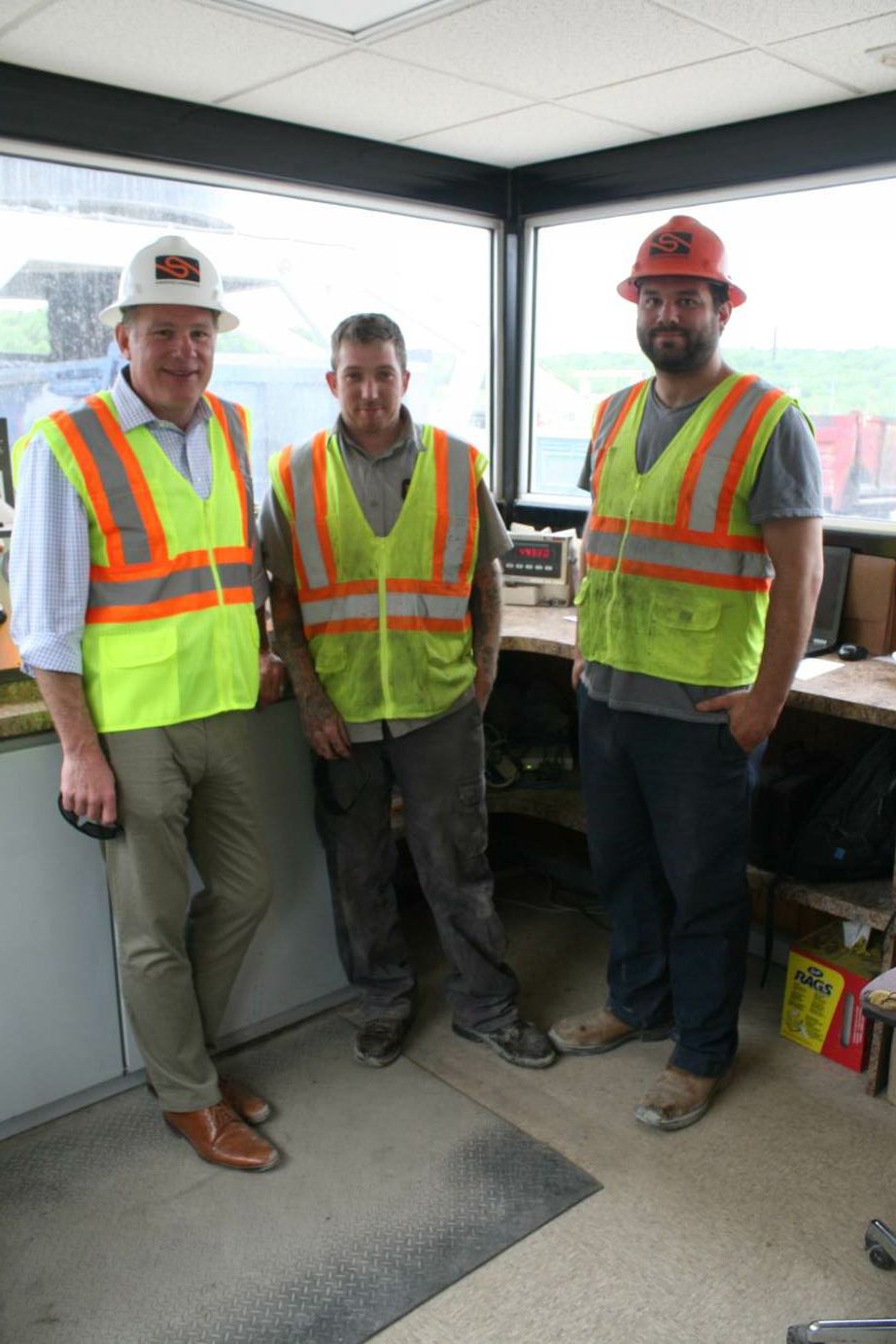
From left: David Sherwood; Chris Wendt, plant operator/site foreman; and Stephen Sherwood, asphalt operations manager
To eliminate the need to wait on key subcontractors or suppliers, after analyzing the I-44 bid opportunities, Sherwood Construction decided they needed to take control of the asphalt facet of the operation.
“That need was critical for us,” Sherwood said. “Though winning the bid on three of the four sections of Oklahoma’s I-44 turnpike expansion was great for the company, it also came with a real challenge. The contract carried a $20,000 per day per section bonus/disincentive clause. So, at $60,000 a day, delay was simply not an option for us; we had to ensure that asphalt was available when we needed it and in the quantities we needed.”
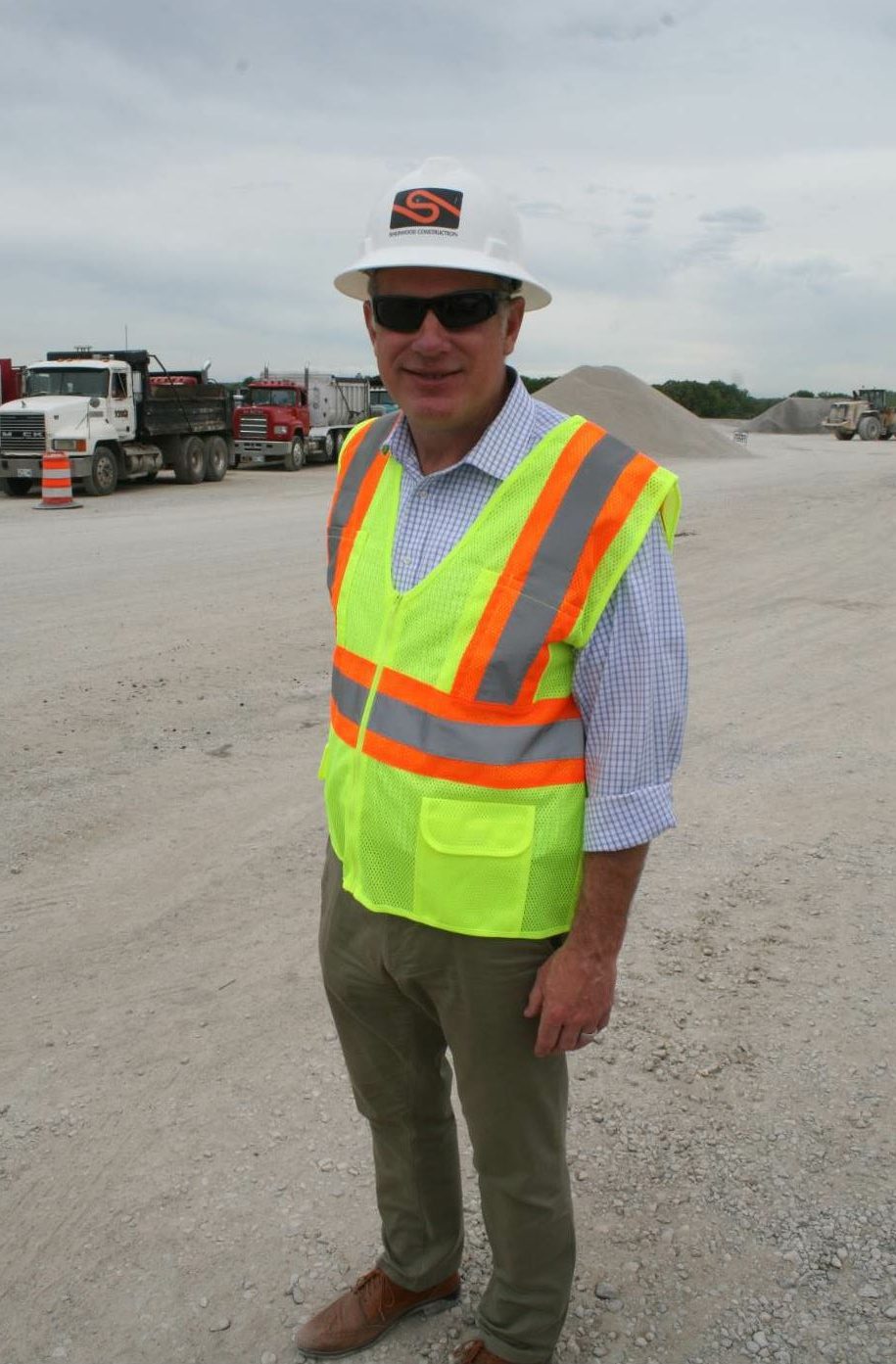
David Sherwood is the chairman of the board and CEO of Sherwood Companies.
Matters were complicated by the fact that there were originally only three major asphalt producers in the area. One had recently bought out another, leaving only two companies—one of which was also bidding the project—in control of material in the region.
“Things probably would have gone just fine, but we decided not to take that chance,” Sherwood said. “We could only guarantee success by producing the asphalt ourselves, so we started looking at what was available out there.”
More Than the Money

The search for an asphalt plant was thorough and comprehensive, with criteria that included everything from an ability to handle reclaimed asphalt pavement (RAP) to production levels to ease of maintenance.
“Cost, of course, was a consideration, but, because we were new to the asphalt game, support was at the forefront of our concerns,” Sherwood said. “We wanted to know that, should we be uncertain about something or have an issue arise, the company that sold us the plant would be there to back it. We got that assurance from ADM. We purchased an EX-10248 plant, which offers production rates of 325 tons per hour, a perfect fit for this project and others as we move forward.”
As the model number indicates, Sherwood Construction’s plant features a drum that is 102 inches in diameter and 48 feet long. It is a single-drum counterflow system that affords them the industry’s longest aggregate drying and mixing times, according to the manufacturer. According to plant operator/site foreman Chris Wendt, despite being fairly new to plant operations, he knows a good thing when he sees it.

Plant Operator Chris Wendt shared that the team has run RAP percentages of up to 25 percent through the new plant.
“I’ve only been in asphalt for about three years now, but I’ve worked with other companies who used different systems,” Wendt said. “I genuinely feel that, by far, this plant has it all. We put a lot of material through it right out of the gate and it rose to the challenge. We are doing about 18 to 20 percent RAP and have had those percentages as high as 25 percent. I don’t know of any other plant in Oklahoma that runs higher than 15 percent… It’s a hard process to achieve, but this plant, despite being a counterflow system, burns very efficiently even at 25 percent.”
For the I-44 project, Sherwood is laying S-3 RAP 64-22, S4 RAP 64-22 and S4 Virgin 64-22 mixes.
Out on the Pike

Ensuring only the highest quality mix gets to the roadway: After the team had shut down for a couple hours, they positioned the wheel loader bucket under the silo to capture material from the gate for the RAP pile.
The project that motivated Sherwood to purchase the new plant is a $27.1 million portion of a larger $120.2 million contract to widen a section of I-44, also known as the Turner Turnpike, just outside of Tulsa.
The contract calls for Sherwood to convert 10.2 miles of existing four-lane asphalt to a new six-lane concrete road with an additional 12-foot shoulder for possible future dedicated truck use.

“This is a tough project, even by our standards,” Sherwood said. “Between the three segments, we are moving more than three million cubic yards of soil and reconstructing 10 bridges along the route. The material demands are equally impressive: by project’s end we will have used 449,000 tons of roadway aggregates, 239,000 cubic yards of concrete and 300,000 tons of asphalt. We already own our own RexCon concrete batch plant, so we were covered in that regard. It was that asphalt volume that concerned us and led to the ADM plant purchase.”
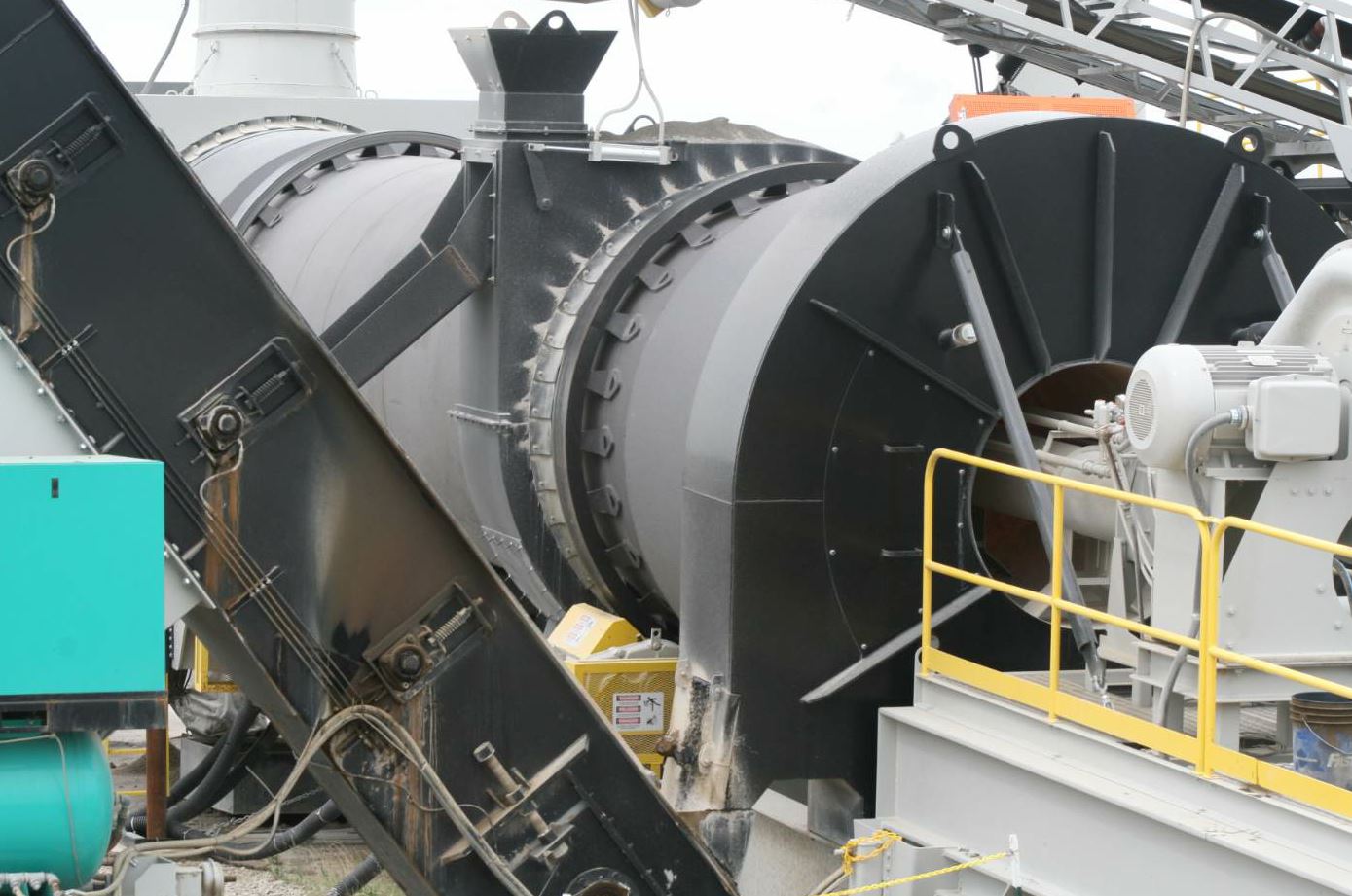
Plant Operator Chris Wendt shared the system burns very efficiently, even when running a RAP percentage of 25 percent.
Though the project would appear to be overwhelmingly concrete in nature, those 300,000 tons of asphalt are nevertheless critical, first as the basis for the detour lane which is handling the re-routed traffic, then later serving as an underlayment for the new concrete.
“Once we have the old pavement milled and removed, we cement-treat the existing subgrade followed by the placement of an aggregate base course,” Sherwood said. “Then, using a Cat AP-1055D paver, we lay down a 10-inch layer of asphalt in three lifts—two 4-inch and a final 2-inch—all in advance of the 11-inch thick concrete. So a delay in the asphalt could easily have a ripple effect down the line, impacting production. We’ve essentially removed the risk of that happening.”
Making a Move
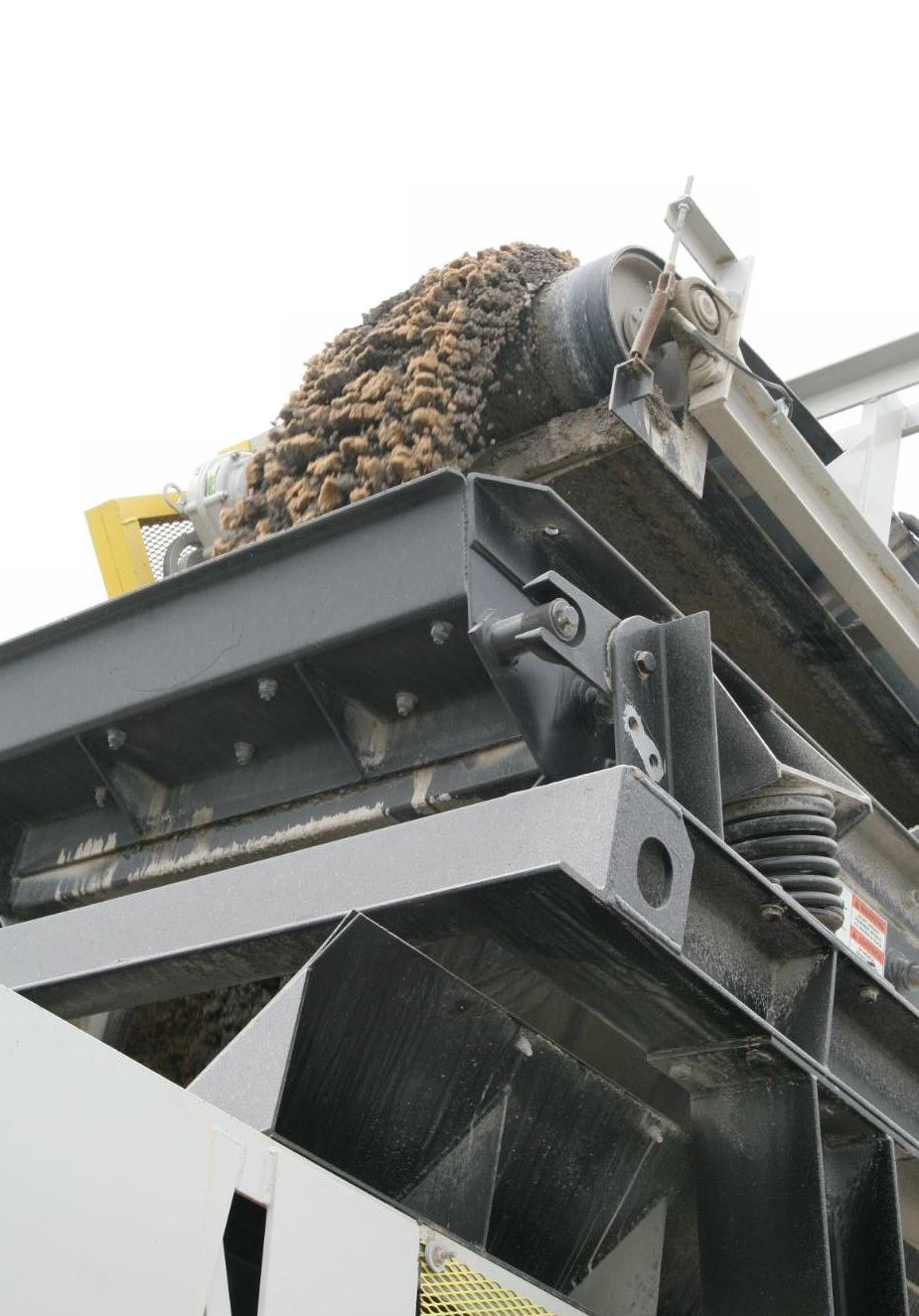
An efficient system of conveyors brings mixed aggregate and fines from the feeds to the drum.
While Sherwood’s asphalt plant as it exists today is portable in design, after the I-44 project is wrapped up, the company plans to move it to a nearby location and convert it into a stationary operation.
“We own a rock quarry and operate it as a separate division called Greenhill Materials,” Sherwood said. “From a logistical standpoint, we always felt there should be an asphalt plant at that location and felt that, once we saw our workload, we could decide if it would be this plant or not. We now feel that it is. Once we make the move, if the need for a second plant arises, we will purchase another portable one to cover that work.”
Because Sherwood’s EX-10248 plant is designed for ease of portability, making the move should be a painless operation. To that end, the company has already ordered a pair of 200-ton stationary silos and will assemble the relocated plant around those.
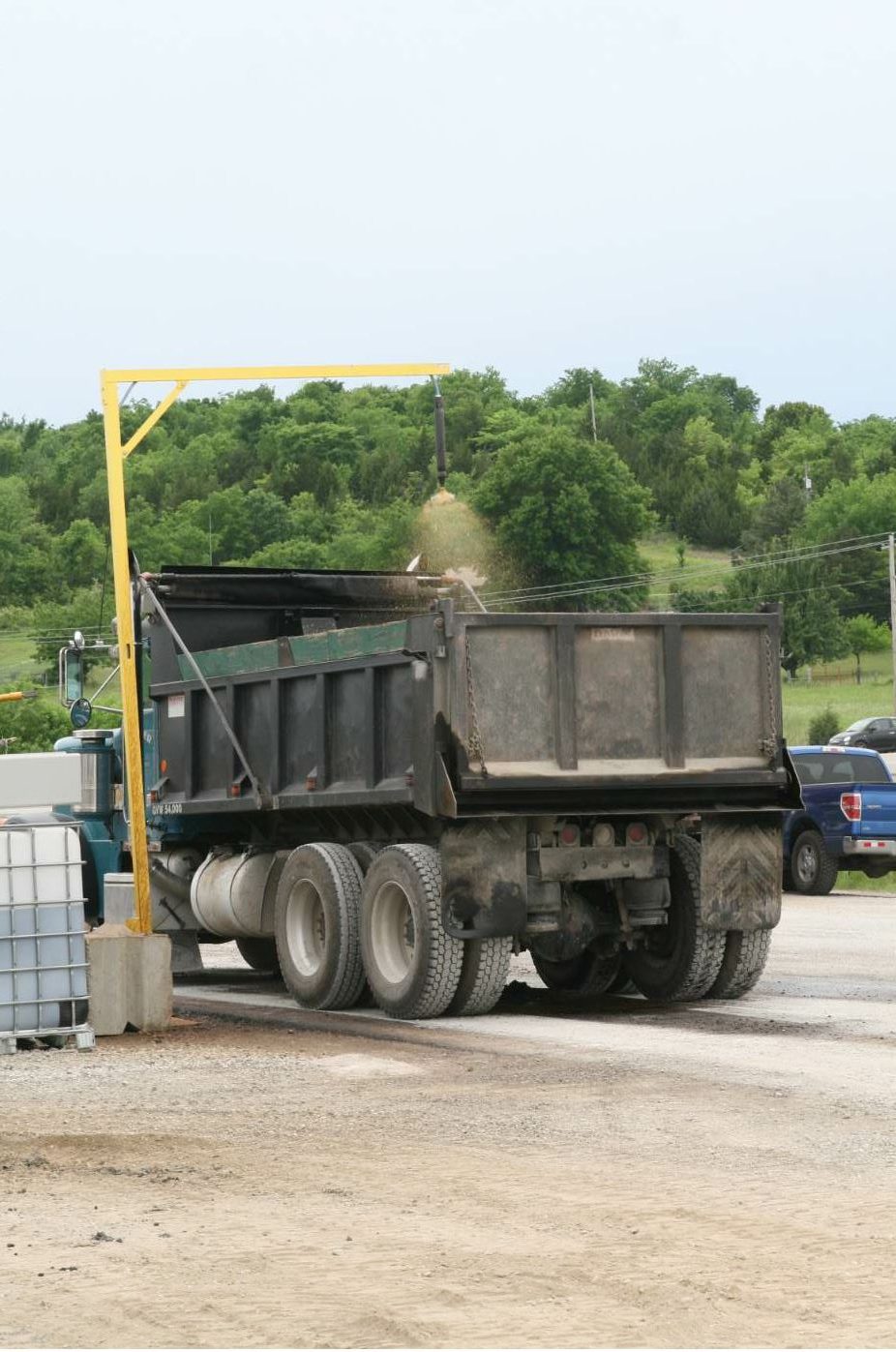
Prior to loadout, haul trucks stop for a spray of release agent.
“Once we have that operation in place, we will focus both on retail sales and bid work around town,” Sherwood said. “We currently do about 1.9 million tons of aggregate out of that quarry per year, so the asphalt operation will tie in well and should be an excellent new revenue stream for us. Given the performance we’ve already gotten out of it, the outstanding support from ADM and the potential it offers for future work, the new plant is a perfect fit for us.”
